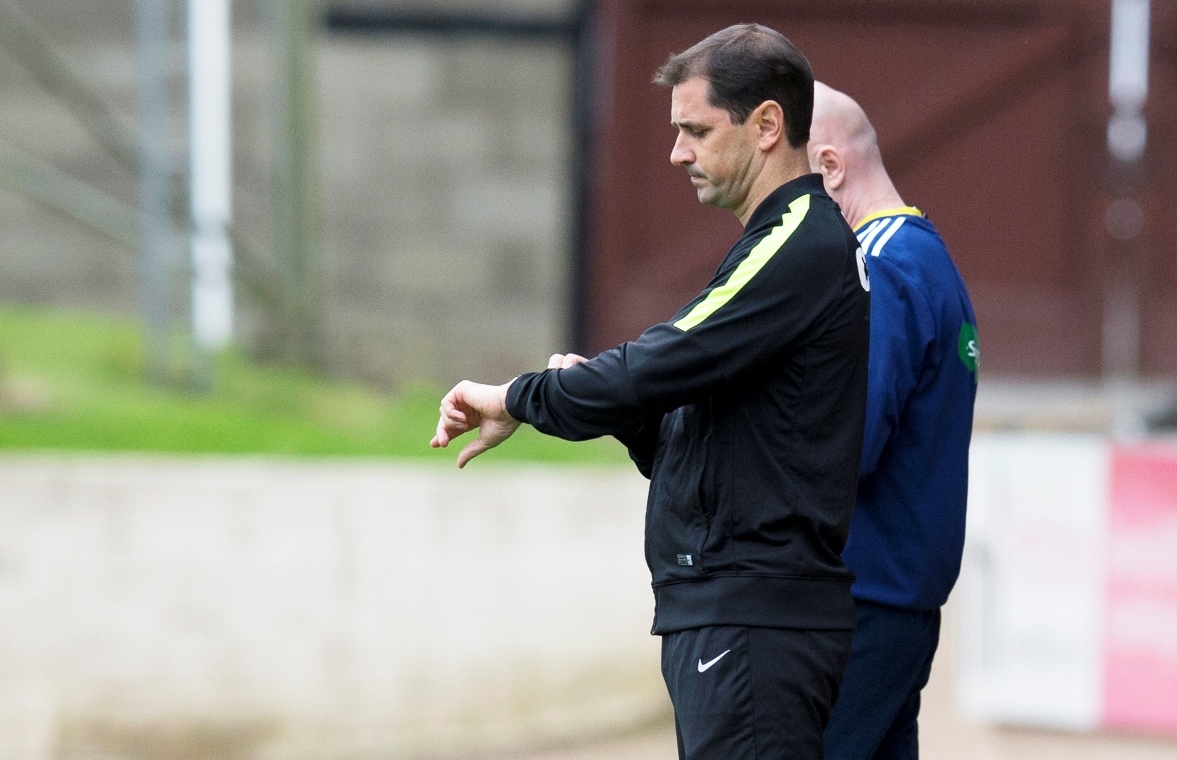
WHEN one boss falls, others soon follow
That’s the message I would have this morning for managers of the Premiership’s lower clubs following the dismissals of Jackie McNamara and Ian Baraclough by Dundee United and Motherwell respectively.
Neither could be called a huge surprise.
McNamara went following a run of results which saw the Tangerines take just five points from their first nine League fixtures.
That, though, was the tip of the iceberg.
Since the sale of Stuart Armstrong and Gary Mackay-Steven at the end of the winter transfer window, they had won only four of 24 League games.
Motherwell were sitting 10th when they parted company with their boss, the dismissal following the club’s unceremonious League Cup exit at the hands of Morton.
Again, though, their end-of-season form was awful. They only held on to their Premiership place because they were able to see off a poor Rangers in the Play-Off Final.
Why, then, did the clubs wait until now to ring the changes?
I think one of the main reasons was a reticence at being seen to be the first big club of the season to sack their man.
After Motherwell pulled the trigger, United wasted little time in following suit.
As I mentioned last week, too, I believe the timing of the Fir Park club’s decision was important.
Although it came just after the League Cup loss to Morton, it was the fact it was done in the immediate run-up to a home game against the Premiership’s bottom team, Partick Thistle, that was particularly significant.
It afforded caretaker manager Stephen Craigan a great opportunity to make a winning start, which the players helped him take.
A winning start which also ensured media coverage was all positive and forward looking.
It is here where the domino effect really comes in.
Because if other struggling clubs see rivals reaping the benefit of managerial change, the temptation to do likewise can be tough to resist especially if fans are loudly calling for them to do so.
The likes of Alan Archibald at Thistle and Kilmarnock’s Gary Locke are two men who would look obviously vulnerable to such action. But there could be others too.
For there is a benefit to directors in changing managers.
Of course, it can be costly and tricky to resolve. But they know they will get credit for being proactive, for making changes in an effort to bring about a bright future for the team on the pitch which almost always goes down well with supporters.
The alternative is to leave themselves open to charges of being guilty of sitting on their hands.
And as a host of sacked managers can testify, a coach is never more vulnerable than when the men above him are taking flak.

Enjoy the convenience of having The Sunday Post delivered as a digital ePaper straight to your smartphone, tablet or computer.
Subscribe for only £5.49 a month and enjoy all the benefits of the printed paper as a digital replica.
Subscribe